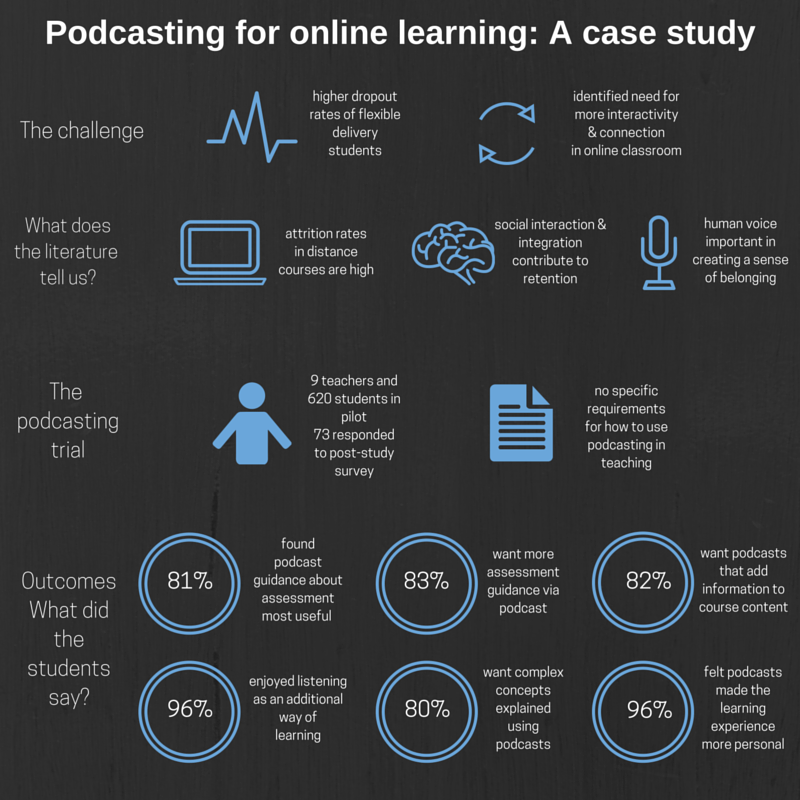Lift Up Your Voice: Podcasting for Engagement

This article is also available to listen to – plug your headphones in and hear Kate’s voice, too!
What engages a learner? More to the point, what engages you when you’re finally home, you’ve been at work all day and the kids are only just in bed? You’re eating dinner over your laptop and trying to concentrate on your latest assignment, but the temporary motivation of that far-off qualification is fading fast…
Could the humble human voice capture your attention when all else fails, chipping through that formidable wall of distraction and procrastination?
Podcasting, now 11 years old, has experienced something of a renaissance recently. Song Exploder has been hailed as ‘probably the best use of the podcasting format ever’ while genre defining examples such as Serial have become cultural events in their own right with almost 3.5 million downloads of each episode. Clearly this is a powerful format.
What happens when that power is used in online education? The use of audio in distance learning is certainly not a new concept but research suggests there’s been a kind of re-discovery of the importance of voice to engagement and connection. Developing a sense of community in distance learners is essential to decreasing attrition and research shows that the voice of the educator plays an incredibly important role in facilitating connectedness, personalising the experience and creating a sense of belonging.
An in-house trial
In 2011 Maria Spies presented a paper to the ASCILITE conference on the use of podcasting to engage online learners. The Australian College of Applied Psychology (ACAP), like other tertiary institutions, was facing higher attrition in their flexible delivery courses. A trial, in which nine educators agreed to use podcasting in their online delivery, was part of a project to improve engagement.

Overall, results were very positive in relation to how students viewed podcasting in flexible delivery. However, certain elements appeared to have a particularly strong impact, for example, frequency. A high percentage of students who experienced podcasts weekly or more often, reported feeling more strongly connected to their educator. In contrast, respondents to the survey who had experienced podcasts once or twice in the term were much less likely to feel the use of the platform was helpful to their study. In terms of engagement, many students agreed that podcasts assisted in keeping their attention and the majority felt they made the topic more interesting.
Research into this area continues across Navitas and we’re seeing more and more evidence that the human voice has a tangible impact on student engagement and even learning outcomes.
Just as a bedtime story can have a near-magical soporific effect on a wide-awake toddler, the human voice, without the distraction of video, seems to have a unique power to reach listeners. We’ll never be able to remove every distraction that can make studying, particularly at a distance, an uphill battle. Perhaps, however, hearing your teacher’s voice right there in the living room might be just the inspiration you need when motivation falters.
Want to find out more on using voice to connect with students?
- Watch Michelle Cavaleri’s video Beyond Written Comments and Christina Del Medico’s Designing Group Work for Online Learning – Lessons Learned
- Read Maria’s full paper Engaging the online learner: Student reactions to the use of audio podcasts in off campus courses
Have something to add? Continue the conversation on Yammer
